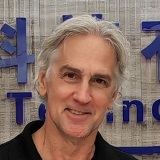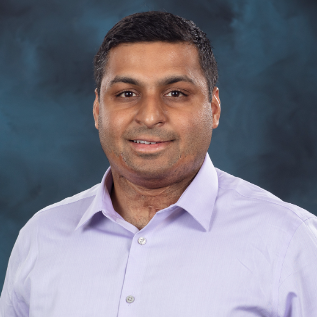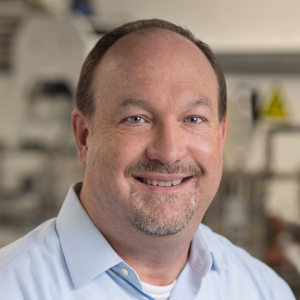Cambridge EnerTechによる
Battery Power for Consumer Electronics
コンシューマーエレクトロニクス向けバッテリーパワー
Battery Innovation for Portable Devices and Personal Mobility
ポータブルデバイス・パーソナルモビリティ向けバッテリーイノベーション
2025年3月19-20日
増加の一途をたどるデジタルコネクテッド分野での技術の進歩に伴い、バッテリー寿命とパワー能力に対する需要はますます高まっています。この会議では、先端の医療機器、コンピューティング、電動工具、スマートフォン、ウェアラブル技術、パーソナルモビリティなど、コンシューマー市場向けバッテリー技術の新たな動向について検証します。このトラックでは、設計、安全性、バッテリー管理、セル化学、試験などのトピックを網羅し、研究者からデバイスメーカーまで、コンシューマー向けバッテリーのバリューチェーン全体とつながる機会を提供します。
3月19日(水)
6:50 amRegistration Open
1:00 pmNetworking Luncheon
2:15 pmDessert Break in the Exhibit Hall with Poster Viewing
ADVANCED BATTERY DEVELOPMENT AND SAFETY
先端のバッテリー開発と安全性
Unlocking Next-Level Battery Performance through Electrolyte Additives: Enhancing Capacity, Efficiency, and Lifetime
 Emily Dickens, Chief Commercial Officer, Octet Scientific
Emily Dickens, Chief Commercial Officer, Octet Scientific
Electrolyte additives represent a powerful yet often underexplored avenue for improving the performance of both traditional and next-generation battery technologies. By incorporating simple yet highly effective ingredients into the electrolyte, significant gains can be achieved in battery lifetime, efficiency, and capacity. In this talk, we will explore the critical role that electrolyte optimization plays in advancing battery performance. Octet, a leader in battery chemistry innovation, specializes in identifying, developing, and scaling up tailored electrolyte solutions to meet diverse customer needs. We will highlight key case studies and share insights into how the right electrolyte chemistry can unlock unprecedented battery potential.
Energy-Dense Solid-State Lithium Batteries Enabled by Halide Electrolytes
 Yan Yao, PhD, Professor, Electrical Engineering, University of Houston
Yan Yao, PhD, Professor, Electrical Engineering, University of Houston
Despite the impressive cycle life observed in halide-based batteries under high stack pressures or at elevated temperatures, poor cathode-electrolyte stabilities still pose a significant challenge that results in rapid capacity decay under low pressure. In this talk, I will present strategies to improve the interfacial instability in halide-based solid-state batteries, addressing both the chemical, electrochemical, and mechanical origins of these instabilities at the cathode-electrolyte interfaces. At optimized condition, we also demonstrate stable cycling of solid-state cells using lithium metal anode for 1000 cycles at room temperature.

High-Voltage, Solvent/PFA-Free LCO Electrodes to Power Consumer Electronics and More
Current manufacturing of electrodes is limiting the ability to build longer lasting batteries to power consumer electronics due to thinner electrodes (less than 15 mg/cm2), instability at high voltages, and usage of toxic/forever chemicals that are being banned. Through Ateios Systems' Raicure platform, a solvent/forever chemical (PFAs)-free electrode manufacturing process has demonstrated that with high-voltage, lithium-cobalt oxide (LCO) at a high-energy dense electrode (over 20 mg/cm2), improved capacity retention and assembly yield to build better batteries at price parity.
4:20 pmRefreshment Break in the Exhibit Hall with Poster Viewing
PFAS-Free Electrically Conductive Polymer Binders for Lithium-ion Batteries-From Environmentally Benign Solvents to Dry Electrode Processing
 Gao Liu, PhD, Group Leader, Energy Storage & Distributed Resources Division, Lawrence Berkeley National Lab
Gao Liu, PhD, Group Leader, Energy Storage & Distributed Resources Division, Lawrence Berkeley National Lab
The green processing of lithium rechargeable battery electrodes, without using NMP solvents and PFAS materials, is essential for sustainable battery manufacturing. Electrode binders play a crucial role, providing cohesion among particles and adhesion to current collectors while accommodating volume changes during charging and discharging. CMC/SBR binders are emerging as eco-friendly alternatives to PVDF, showing superior performance and lower costs. Meanwhile, silicon-based anodes offer high capacity but face challenges like volume changes and stability. Innovative conductive polymers are being developed to enhance electrode performance, facilitating eco-friendly processing and improving battery longevity.
At the Intersection of Micromobility, Aftermarket Batteries, and Product Safety
 Ibrahim Jilani, Global Director, Consumer Technology, UL Solutions
Ibrahim Jilani, Global Director, Consumer Technology, UL Solutions
This presentation will go into the latest regulations for micromobility and their batteries, as well as the safety concerns of aftermarket batteries (whitepaper issued by UL Solutions in 2024) and its intersection with product safety.
Batteries for Medical Devices
 Gordon Munns, PhD, Sr Mgr, Energy Sub Systems Research & Technology, Medtronic Inc
Gordon Munns, PhD, Sr Mgr, Energy Sub Systems Research & Technology, Medtronic Inc
Within the medical device market, lithium-ion batteries power everything from miniature implantable products to large hospital capital equipment. Delivering the utmost safety and reliability to our patients requires a unique focus on requirements and a clear understanding of the use conditions. Here, we will examine how some of these aspects influence the design and use of lithium-ion cells and packs in medical devices.
6:30 pmClose of Day
3月20日(木)
8:00 amRegistration and Morning Coffee
OEM-DRIVEN DEVELOPMENT
OEMドリブン開発
8:30 amSponsored Presentation (Opportunity Available)
Batteries for Outdoor Security Camera Applications
 Jason Randel, PhD, Product Safety Engineer, Amazon Ring
Jason Randel, PhD, Product Safety Engineer, Amazon Ring
The global smart home security camera market size, wireless and wired combined, is increasing year over year and has reached over $7 billion dollars in 2022. The reliability and safety performance of the battery cells in the wireless space is more demanding than ever. The talk aims to share some of the lessons learned to balance these competing priorities and to select the best cells for these adverse applications.
9:00 amBattery Booth Crawl with Bagels in the Exhibit Hall with Last Chance for Poster Viewing
 Silicon anodes for AI-powered wearables
Silicon anodes for AI-powered wearables
 Tim Aanhane, Sr Business Developer, Product Management, LeydenJar
Tim Aanhane, Sr Business Developer, Product Management, LeydenJar
Silicon increases energy density in lithium-ion batteries by up to 70%, while graphite has reached its maximum capacity. As silicon anodes are reaching the market, how do they perform in a cell?
This session dives into the main challenges of silicon and how LeydenJar overcomes these challenges one by one. The latest nano-engineered silicon anodes enable silicon anodes to cycle for the lifetime of our devices, without any external pressure. These results makes silicon anodes capable of providing the industry with the smallest high capacity batteries for novel AI-powered wearable devices.
LeydenJar produces pure silicon anodes with a cell level energy density of 900Wh/L and fast charging capabilities. These silicon anodes change the way we power and use our wearable devices and smartphones. Production of the silicon anodes happens in The Netherlands, where LeydenJar's PlantOne production facility will start operation next year.
10:00 amAttendee Transition to Booth Crawl in Exhibit Hall
Challenges and Solutions for LFP and LMFP State-of-Charge Indication
This presentation examines various challenges related to measuring the state-of-charge in lithium iron phosphate (LFP) and lithium manganese iron phosphate (LMFP) battery types. It discusses factors affecting accuracy and suggests potential improvements. The aim is to enhance overall performance and reliability in energy storage systems.
AI-Based Smart Charging Algorithm for Next-Generation Li-ion Batteries
 Naoki Matsumura, Principal Engineer, Intel
Naoki Matsumura, Principal Engineer, Intel
Li-ion batteries are used in many products. While always full-charging and fast-charging gives users psychological safety, batteries degrade more quickly. Today’s “if-then” based adaptive charging automatically reduces charging level and charging speed. This may lead to battery longevity extension as long as user’s usage pattern matches “if-then” conditions. There is an opportunity of further longevity extension by considering each user’s unique usage pattern and automatically customizing the algorithm by machine-learning and deep-learning. This session explains context-based charging, a machine-learning/deep-learning hybrid algorithm, that extends battery longevity even further. Implementation example and application to next generation Li-ion batteries are also explained.
 Empowering the Future: Advancements in Lithium-Ion Battery Technology for Consumer Electronics, Drones, E-Motorcycles and More
Empowering the Future: Advancements in Lithium-Ion Battery Technology for Consumer Electronics, Drones, E-Motorcycles and More
 Jeff Helm, Vice President, Sales & Marketing, Enpower Greentech
Jeff Helm, Vice President, Sales & Marketing, Enpower Greentech
In an era driven by digital innovation, the demand for efficient, reliable, and high-performance energy storage solutions has never been greater. Enpower Greentech Inc. is at the forefront of this revolution, pioneering advancements in lithium-ion and lithium-metal battery technology to power the next generation of consumer electronics, drones, e-motorcycles, and e-mobility.
This presentation delves into the latest breakthroughs in battery chemistry, design, and manufacturing processes, highlighting their impact on performance, longevity, and sustainability. Attendees will gain insights into our cutting-edge research and development efforts, real-world applications, and future directions that promise to elevate product performance.
Join us to explore how Enpower Greentech Inc. is leading the charge toward a more electrifying future.
12:15 pmEnjoy Lunch on Your Own
Understanding Battery Requirements for 3C Applications
 Jeff Bruce, Director Battery Technologies, Battery Development, Microsoft Corp.
Jeff Bruce, Director Battery Technologies, Battery Development, Microsoft Corp.
There is an assumption that battery requirements for 3C applications are way easier to meet than for EV or ESS; while true in many regards, there are still some difficult requirements for the newer technologies (think silicon, solid-state) to meet. This talk will review where LCO-and to a lesser extent-NCM are, and where Si and SSB need to be in order to use 3C applications.
Designing Batteries for Mixed-Reality Headsets and Augmented-Reality Glasses
Karthik Kadirvel, PhD, Director, Battery Engineering, Meta Platforms
This presentation explores innovative battery designs tailored for mixed reality headsets and augmented reality glasses. We examine the unique power demands and spatial constraints of these devices, proposing solutions that enhance energy efficiency, reduce weight, and extend operational lifespan. By integrating advanced materials and smart battery management systems, our research aims to improve user experience and device performance in immersive applications, paving the way for future developments in augmented technologies.
Are High Energy Density Batteries Really Needed for Consumer Electronics?
 John Wozniak, PhD, President, ESP Consulting
John Wozniak, PhD, President, ESP Consulting
The primary selling feature for the majority of consumer electronic devices has been runtime. This has necessitated higher energy density batteries to satisfy runtime targets. Although runtime is still a selling feature, the vast majority of consumers never use close to the maximum runtime their device can give them. What are consumers willing to pay for in an advanced battery?
3:15 pmTransition to Closing Plenary Panel
CLOSING PLENARY PANEL DISCUSSION
プレナリーパネルディスカッションの閉会
The Global Battery Industry Landscape: Opportunities & Illusions
Christina Lampe-Onnerud, PhD, Founder and CEO, Cadenza Innovation
As the global battery industry experiences supercharged growth amidst shifting political dynamics, it faces both immense opportunities and significant challenges. This international panel of experts, spanning critical sectors such as investment, supply chain, cell design, manufacturing and deployment, will share their insights on the industry's future. They will discuss growth prospects, key challenges, and achievable milestones in the near and long term.
4:30 pmClose of Conference
* 不測の事態により、事前の予告なしにプログラムが変更される場合があります。
アジェンダ・講演者・スポンサー更新







 Talk Title to be Announced
Talk Title to be Announced Talk Title to be Announced
Talk Title to be Announced












 Next-Generation Battery Research
Next-Generation Battery Research High-Performance Battery Manufacturing
High-Performance Battery Manufacturing Advances in Automotive Battery Applications
Advances in Automotive Battery Applications Battery Safety
Battery Safety
